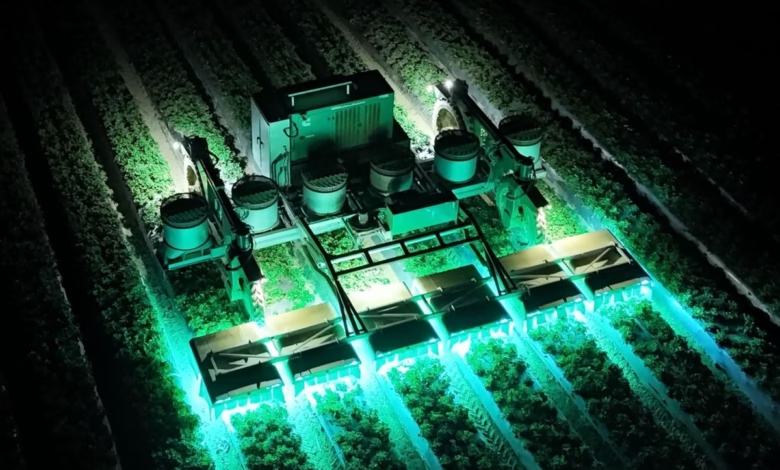TRIC Robotics Cuts Strawberry Pesticides with UV Light

▼ Summary
– Strawberries are the most popular berry in the U.S. but are heavily reliant on pesticides, often ranking high on the “Dirty Dozen” list of contaminated produce.
– TRIC Robotics developed autonomous robots that use UV-C light and vacuums to kill bacteria and pests, helping farmers reduce chemical use.
– The company operates on a service model, deploying robots overnight to treat up to 100 acres, rather than selling them directly to farmers.
– TRIC pivoted from 3D-printed robots for SWAT teams to agriculture in 2020, focusing on impactful technology after connecting with the USDA.
– The startup raised $5.5 million in seed funding to expand its robot fleet and plans to extend its technology to other crops in the future.
Strawberries rank among America’s favorite fruits, but their cultivation comes with a hidden cost – heavy pesticide use that consistently lands them on environmental watchlists. A California startup believes robotics and ultraviolet light could offer farmers a cleaner alternative to chemical treatments while protecting both crops and consumers.
Based in San Luis Obispo, TRIC Robotics has developed autonomous machines that deploy UV-C light, a type of ultraviolet radiation filtered by Earth’s atmosphere, to neutralize harmful bacteria and disrupt pest cycles. These tractor-sized robots operate overnight, covering up to 100 acres per unit while using specialized vacuums to remove insect debris without damaging plants.
Rather than selling equipment outright, TRIC operates on a service model, mirroring how farmers already outsource pest control. Co-founder and CEO Adam Stager explains this approach accelerated adoption: “Farmers already pay for spray services, so we simply replace chemical treatments with our robotic alternative.”
Interestingly, agriculture wasn’t TRIC’s original focus. Founded in 2017 after Stager completed his robotics PhD, the company initially designed tactical robots for law enforcement. A 2020 pivot toward agriculture emerged from Stager’s desire to create broader societal impact. “I asked myself if my work would matter if I died tomorrow,” he recalls. “Agriculture became the obvious space where technology could improve lives at scale.”
Collaboration with the USDA proved pivotal, connecting TRIC with researchers developing UV light applications. Early prototypes, built in a garage and tested on small plots in 2021, evolved into a fleet now serving four major strawberry growers. With nine robots deployed and three more in production, the startup recently secured $5.5 million in seed funding led by Version One Ventures.
Looking ahead, TRIC aims to expand its robotic fleet and adapt the technology for additional crops. Stager remains optimistic: “Agriculture tech is reaching an inflection point – the innovations coming will reshape farming for the better.” As consumer demand for sustainable produce grows, solutions like UV-treated strawberries could soon become the norm rather than the exception.
(Source: TechCrunch)
